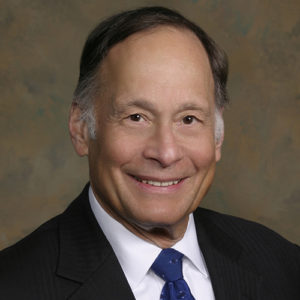A Massachusetts federal court judge recently dismissed a claim by an individual against his former employer alleging a violation the Americans with Disabilities Act (ADA). The basis for the employee’s lawsuit was that the employer denied him a “reasonable accommodation” when the employer denied the former employee’s request to start work a half-hour to one-hour later than his scheduled shift. The case is Zavaglia v. Boston University School of Medicine.
The purpose of the ADA is to eliminate discrimination against qualified disabled persons. The ADA defines a disabled individual as (a) having a physical or mental impairment that substantially limits one or more of the major life activities of such individuals, (b) having a record of such an impairment, and (c) being regarded as having such an impairment. Under Title 1 of the ADA, all employers are required to evaluate accommodations requested by employees who claim to be disabled and engage in an interactive process with the employee to determine what accommodations the employee is requesting. Each employer must then determine whether the requested accommodation is reasonable without placing an undue hardship on the employer.
In this recent Massachusetts federal court case, the accommodation that the employee requested was to adjust his daily start time by 30 to 60 minutes. The employer determined that the request was not linked to the employee’s disability and was therefore not reasonable. Even though the employee presented a doctor’s note in connection with the requested accommodation, the doctor’s note stated that it was the employee’s opinion, not the doctor’s, that the employee required the accommodation. The accommodation request and the physician’s note also do not explain why (a) the disability required a later start time, and (b) the former employee was unable to address his medical needs prior to the start of his scheduled shift. On those bases, the employer denied the request.
The employee was frequently late to work following the employer’s denial of his request for a later starting time. The employer warned the employee that his frequent lateness was not acceptable, and ultimately terminated the employee’s employment due to tardiness.
The court ruled that the employer’s reasons for not granting the requested accommodation were valid. The former employee did not establish that his request was based on his medical condition and he failed to show that his request was reasonable for the employer. In determining that the request was not reasonable, the court also refused to consider disabilities that the employee claimed to have but did not disclose to the employer prior to termination of his employment. The court declined to find that the termination of the employee’s employment was wrongful, and instead found that the termination was rightfully based on the employee’s frequent tardiness.
Employer takeaways:
An employee who presents a doctor’s note stating the need for a later starting time based on a medical condition is not automatically entitled to start work later under the ADA. The employee still must show that his/her medical condition is a disability and that the demand to create a new shift is reasonable. An employer must engage in an interactive process with any employee requesting an accommodation for a disability. In the course of the interactive process, the employer and employee can evaluate both the basis for the request and the effect of the request on the employer. The ADA does not require that the employer approve all accommodation requests, but that the employer evaluate and make reasonable accommodations to assist disabled individuals in performing the same job functions as non-disabled employees. If the accommodation would impose an “undue hardship” on the employer, the employer is not required to approve it. The term “undue hardship” is defined by the ADA but interpretation varies based on the functions and structure of the employer.
Do you have questions about reasonable accommodations, the interactive process, or what “undue hardship” may mean for your company? Please feel free to contact us info@cohenkinne.com.


 Recently, Jeff Cook was re-elected Secretary of the Massachusetts Business Roundtable. MBR is a public policy organization comprised of Chief Executive Officers and Senior Executives from some of the state’s largest employers. MBR’s mission is to strengthen the state’s economic vitality. MBR’s policy work includes task forces on education initiatives, health care, taxation/regulation, workforce development, and infrastructure issues.
Recently, Jeff Cook was re-elected Secretary of the Massachusetts Business Roundtable. MBR is a public policy organization comprised of Chief Executive Officers and Senior Executives from some of the state’s largest employers. MBR’s mission is to strengthen the state’s economic vitality. MBR’s policy work includes task forces on education initiatives, health care, taxation/regulation, workforce development, and infrastructure issues. with over five years of experience as a trial attorney for the
with over five years of experience as a trial attorney for the